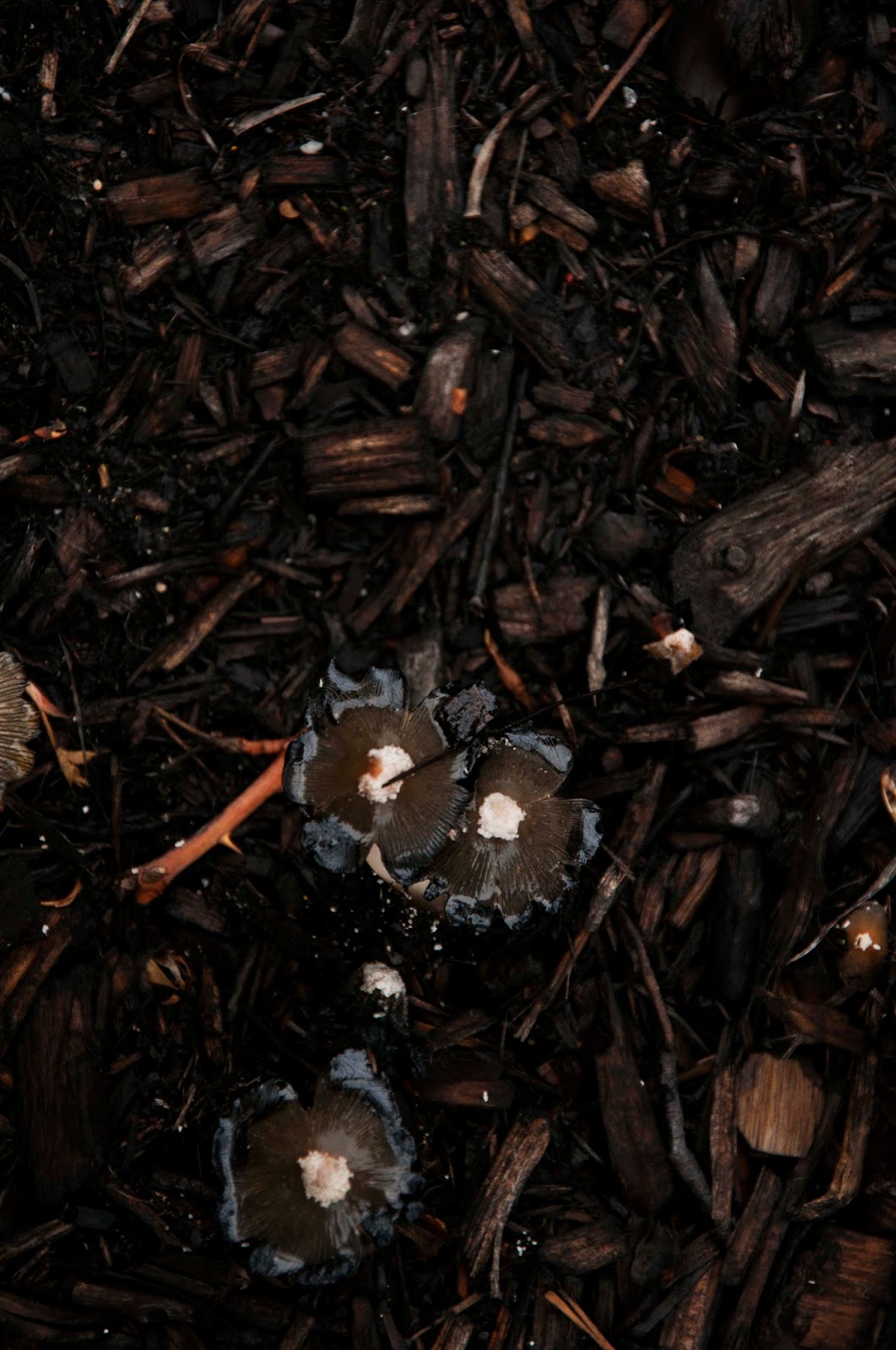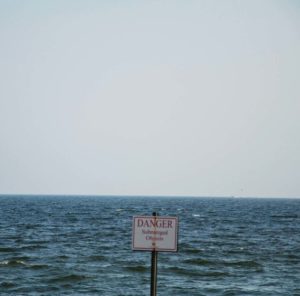Feed Me, Also, River God
by Marianne Moore
Lest by diminished vitality and abated
vigilance, I become food for crocodiles–for that quicksand
of gluttony which is legion. It is there close at hand–
on either side
of me. You remember the Israelites who said in pride
and stoutness of heart: “The bricks are fallen down, we will
build with hewn stone, the sycamores are cut down, we will
change to cedars”? I am not ambitious to dress stones, to
renew forts, nor to match
my value in action, against their ability to catch
up with arrested prosperity. I am not like
them, indefatigable, but if you are a god, you will
not discriminate against me. Yet–if you may fulfill
none but prayers dressed
as gifts in return for your gifts–disregard the request.
—
I came across “Feed Me, Also, River God,” by Marianne Moore on Poets.org and enjoyed it so much I am passing it along, perhaps you, too, might find it enjoyable. I often find Moore’s poems satisfying partly because of their length–short!–and generous depth. I also appreciate her witty and humorous use of imagery. One of my favorite poems by Moore is “To a Snail,” which is a verse of meditative ingenuity. But this particular poem, “Feed Me, Also, River God,” clicks into current thoughts on the ego and how fascinating it is. It is quite interesting how we often outcry the flaws of others not realizing ourselves guilty of the same faults. By the way, if you would like some very engaging perspective on the ego, do refer to Discourses by Meher Baba Vol. II. It is quite enlightening. Right! To the poem.
First, let us look at the title–I’m always interested in titles because they often whisper something of what is to come in the work. Listen to this one: “Feed Me, also, River God.” Does it not instigate a play on agency? The request, “Feed Me, Also” has at least three suggestions I would like to explore briefly here: 1) The wish to be fed, i.e. a subsequent desire for strength; 2) The suggestion that the River God has the ability to “feed,” and is at least feeding others; 3) The notion that the speaker is feeling neglected; that is, others seem to have been fed, but they are yet to receive the same treatment. In this analysis, I will situate these points hinted at by the title in the poem. But I am also interested in uncovering the nature of the speaker’s request, “Feed Me, Also, River God.” Is it a prayer? I ask if it is a prayer because when one makes a request of a god, it is often considered a prayer of sorts. But because the speaker’s request reads directly and rather authoritatively it gives one pause. However, one may classify the request a prayer if one defines said act of appeal as autocratical. On the other hand, the request fails the category if one defines prayer as beseeching from a place of faith and humility.
Now let us look at the first stanza. These lines elucidate a fear of becoming victim to that which one has no wish to succumb to. The vivid image and metaphor is the word “crocodiles,” and it defines and supports the word “legion.” Thus the speaker is convinced to be in the midst of predators. The majority, which are “close at hand––/ on either side.” For this reason the speaker cannot afford to suffer any “diminished vitality” nor “abated/vigilance” (by the way, I cannot read nor hear the word vigilance without thinking “CONSTANT VIGILANCE!” Remember Mad-Eye Moody? Harry Potter? So hilarious! :D) for to suffer so would make them “food for crocodiles.” The image portrayed is that the speaker is in constant battle with those in a shared environ; an ongoing struggle from which there is no rest. This supports an interpretation of the title as a need of strength––strength required to survive the “crocodiles.”
In the second stanza more attributes are given the words “crocodiles,” and “legion” and also the speaker is further defined. It appears the “crocodiles” are characterized by “pride / and stoutness of heart” and are like the biblical Israelites who said things like “‘The bricks are fallen down, we will / build with hewn stone, the sycamores are cut down, we will / change to cedars.’” These “crocodiles” are, therefore, those who believe themselves quite capable and have no need of any god to pray to or make demands of. Since the speaker identifies as different from the “crocodiles,” the insinuation is that she lacks such belief, that is, one may suppose the speaker is not the sort to squirm out of praying for help. But what is the truth of this claim?
The last stanza offers an even clearer reading of the poem. By declaring, “I am not like / them, indefatigable,” in the first and second lines, the allusion that the speaker is not like those “close at hand–/ on either side / of me,” is a more lucid positioning than is shown in the second stanza. The speaker is no longer biting about the bush––biblical quotes and metaphors––but gets explicit. Reading the last stanza a little closely further supports the point of view that she believes her opponent, the“crocodiles,” at an advantage. The request she is thus making is for matching vitality to make her as “indefatigable” in her resistance.
The speaker thus addresses the River God as such, “But if you are a god, you will / not discriminate against me.” This address does two things: 1) It defines the speaker’s understanding of what a god does: does not “discriminate”; 2) It challenges the god on the merit of its godhood: the underlining translation is, I cannot accept your godhood unless you fit my definition of it. These speaks to my third way of reading the title as a statement of the neglected. The question of the godhood of the River God stems from the speaker’s belief of being the resident of a state of abandonment; thus the need to make this inquiry of this supposed god. Yet the speaker does not ask meekly, but rather commands, “You will / not discriminate against me.” But one wonders, however, if the “crocodiles” are indeed stronger than her? Or just more seemingly privileged? Obviously, in that they are the majority, their strength is that of their mass, but can the mass overtake the River God? If so, there is no need for the speaker to request its assistance. But that the speaker commands the help of the god suggests its capability to overthrow the mass.
To distinguish whether the speaker prays or not, the tone of the poem must be taken into consideration. The speaker claims to be without pride, and yet her ego is apparent from the title to the last lines of the poem: “Yet-if you may fulfill / none but prayers dressed / as gifts in return for your gifts––disregard the request.” The tone of these lines is quite arrogant, as is the title and the entire poem. And quite passive-aggressive, too! Yet I will like to maintain that the poem can indeed be classified a prayer, that is, a frustrated cry for help. The speaker, unhappy with the current state of things is seeking deliverance. Although she does not seem to believe in the River God, the foundation of that lack of faith is shaky as is made visible in her willingness to make demands of the River God, all the same.
The speaker does not seem to recognize that she claims for her own credit the feat of achieving that which is outside her capacity, that is the ability to rub shoulders with that which ought to be able to fall her, effortlessly. The suggestion here is that it is possible this River God is already assisting the speaker without having been asked. And obviously outside the speaker’s consciousness. If it is not the case then surely she does not need this god. But in failing to meditate on where the vitality to preserve against such vicious predators springs from, in the first place, the speaker suffers the hubris of thinking herself the source of such marvelous vigor.
Jane A. Odartey



